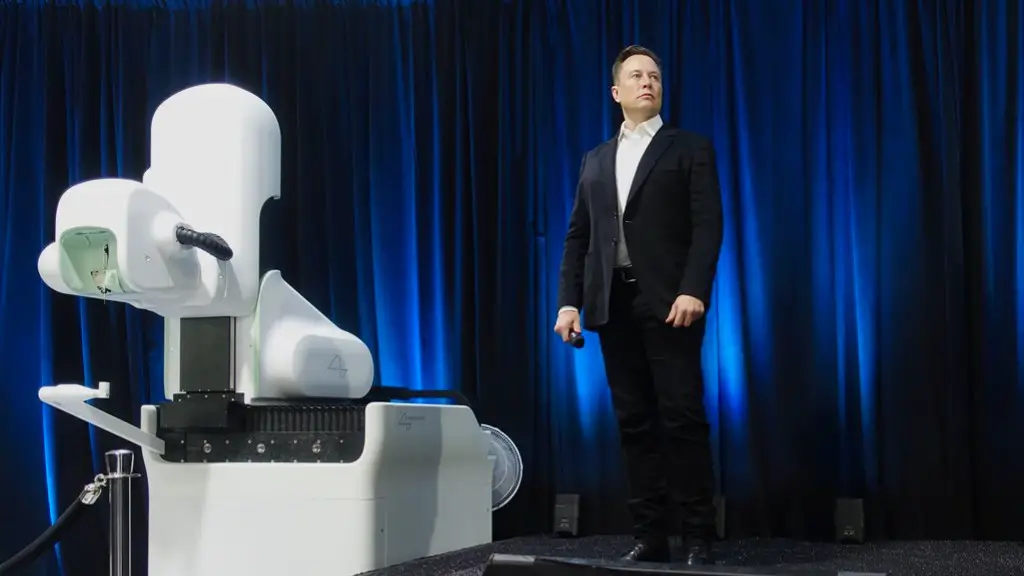Out of the Ordinary Outbursts
Elon Musk is renowned for his ambitious business aspirations as well as for his tendency to lash out on Twitter. This behavior has left many wondering if Elon Musk is mentally unwell, with some in the psychiatric field even diagnosing him with an illness. But is this diagnosis accurate or simply a snap judgment?
In recent years, many have characterized Tesla businessman and SpaceX innovator Elon Musk as a brilliant innovator who is “technically capable of making real-time engineering changes” and “ makes decisions quickly and isn’t afraid to take risks”. Such assertions are validated by his valuable contributions to the world of modern engineering, and for the most part, these applaudable attributes serve Musk quite well. On the other hand, his occasional outbursts on Twitter often receive ample publicity, causing the public to question his mental health.
A handful of mental health professionals have stepped forward to declare that Musk is, in fact, mentally ill. According to Dr. John Grohol, a renowned psychologist and psychotherapist, Musk could be exhibiting signs of Borderline Personality Disorder or Narcissistic Personality Disorder. He explains that if left unchecked, Musk’s emotional outbursts could typically result in “ volatile relationships, sudden mood shifts, and potential difficulties regulating anger, anxiety, and impulsiveness.”
Other experts argue that lack of sleep and high levels of stress could also be to blame. Dr. Paul Hokemeyer, a clinical and consulting psychiatrist with expertise in high profile individuals, suggests that Musk “ suffers from a form of mania that’s so characterized by ambitious ideas, and impulsive, reckless behavior.” He further explains that this “ comes from a man who works about 120 hours a week and has four very young children. He’s clearly at the extremes of exhaustion in terms of physical and mental well-being.”
It’s true that sleep deprivation and stress can lead to thought processes and actions that are seemingly bizarre or impulsive. Additionally, the extremely demanding impetus behind Musk’s inter-related projects could serve as a breeding ground for immense pressure. Despite these potential explanations, only a licensed professional can make an accurate assessment regarding Musk’s mental health state.
In any case, Elon Musk most certainly has a unique work-style and temperament that occasionally shines through, making him a subject of public discussion. Whether or not these public outbursts are symptomatic of a mental illness will continue to remain a topic of debate.
Impulsive Tendencies In Others
When it comes to Musk’s outbursts, the above evaluation focuses primarily on the individual. An overall analysis of impulsive tendencies across the population can be just as enlightening. According to the American Psychological Association, impulsivity refers to a behavior characterized by spur-of-the-moment decisions rooted in sensation-seeking behaviors and/or feelings of invincibility. This can manifest in numerous ways, from impulsive shopping and reckless driving, to binge eating and substance abuse.
Media and technology can also contribute to feelings of impulsivity, especially when it comes to communicating online. An article published in the journal Psychology of Popular Media Culture points to Facebook and other social media sites as “ contexts with low response costs” that could encourage impulsive behavior, such as saying something unwise or making a poor decision. It’s clear that impulsivity can easily (and often harmfully) manifest itself both in and out of the digital context.
Analysis Of Impulsiveness
Impulsive behavior can be just as detrimental in the professional realm. According to Dr. Brian Shulman, a clinical psychiatrist specializing in mental health at Workplace Psychiatry, impulsive behavior can hinder business processes and blur lines of ethicality. Shulman explains: “Part of the doctor-patient relationship is the relationship of trust and understanding, and without a clear cognitive definition of what impulsivity looks like, it can often feel like a slippery slope.”
Furthermore, an article in Harvard Business Review draws attention to the importance of understanding the scientific basis of impulsivity. The authors explain that impulsivity can be caused by potentially treatable brain dysfunction and warps the decision-making process. They suggest that diagnosing behaviors such as this and finding the reasons behind them can lead to creative solutions and promote healthier work cultures.
The article, as well as Dr. Schulman’s assessment, serves to highlight the importance of understanding the many underlying causes of impulsivity, rather than simply relying on labels and assigning illness. After all, an emotional outburst which reflects an individual’s inability to process stressors properly may be more indicative of an environment which is severely lacking in support and understanding, not an actual illness.
The Roots Of Impulsivity
Although impulsivity can be an indicator of deeper issues and perhaps a mental illness, it’s important to understand the true roots of such behavior. An article from the American Psychology Association suggests that impulsivity is largely a product of underlying social factors, such as having peers who support a deviant lifestyle. Peer associations can increase the likelihood of engaging in impulsive actions, whether it be for feeling accepted or simply living up to expectations.
Additionally, a study published in the Journal of Personality and Social Psychology reflects that an individual’s impulsivity is inherently linked to their temperament, meaning that certain characteristics are bred into each person. This can ultimately lead to different types of behavior, with some individuals more prone to impulsive decision-making in certain situations.
Lastly, research conducted by the University of Southern California suggests that the influence of inherited personality traits are often exaggerated. They conducted a study which compared a person’s perceived and actual traits, and determined that a person’s environment has a far greater role in determining their behaviors.
Mental Health Discourse
The mental health discourse around Elon Musk is difficult to ignore. It is difficult to ignore given the extensive media attention which is supplemented with claims from mental health professionals. But although the hype is valid, it is important to remember that attributing a mental illness to someone should remain within the perimeter of a healthcare professionals due to the lack of accuracy when making such claims.
It is true that impulsive outbursts such as those demonstrated by Musk can be indicative of mental illnesses. However, many environmental and temperamental factors can also result in an individual’s impulsivity. Therefore, it is necessary to make sure that any judgement is backed by evidence, as it is often very easy to overlook the true reasons behind outbursts.
The Rewards Of Impulsivity
On the other hand, recognizing the rewards of impulsivity is also essential. Elon Musk is an example of someone who is famously innovative and daring, which is likely due to his tendency to take a risk. Research conducted by the University of Queensland indicates that those who are more impulsive are more creative and open to novel ideas. These characteristics often lead to success in business, a fact that is often overlooked.
What’s more, an article from the Harvard Business Review suggests that impulse can also be used for good. This can include engaging in community initiatives and fostering teamwork. By considering the possibility of impulsive behaviors as a source of collaboration, business owners can take advantage of them, transforming such propensities into beneficial tools.
Different Takes On Impulsivity
Ultimately, impulsivity is a phenomenon which should be approached with open-mindedness. It cannot simply be attributed to illness, or used as an excuse for ill-mannered behavior. Actually understanding impulsivity and learning to navigate it are pivotal for any business-oriented individuals, such as Elon Musk.
It is essential to recognize that the views of mental health professionals and the general public may not always be the same. This can sometimes lead to a clash in opinions, which could be an indicator of a more serious issue itself. The best way to handle this is to step back and consider the evidence objectively, and encourage open dialogue between both parties.
The Purely Professional Opinion
Overall, only healthcare professionals can properly diagnose an individual with any mental health disorder. It is not the role of family members, friends, colleagues or the media to do so. Thus, any claims which attribute illness to an individual have no registered legitimacy.
Healthcare professionals often specialize in fields such as psychiatry, psychology, and social work and are trained to recognize, name, and treat mental health illnesses. As such, it is always a good idea to trust the beliefs of professionals in this field when it comes to mental health.
In the case of Elon Musk, his impulsivity should be carefully evaluated by professionals in order to distinguish a potential mental illness from other factors such as stress, lack of sleep, bad environment and so on. That, in effect, will best determine the true nature of his outbursts.





